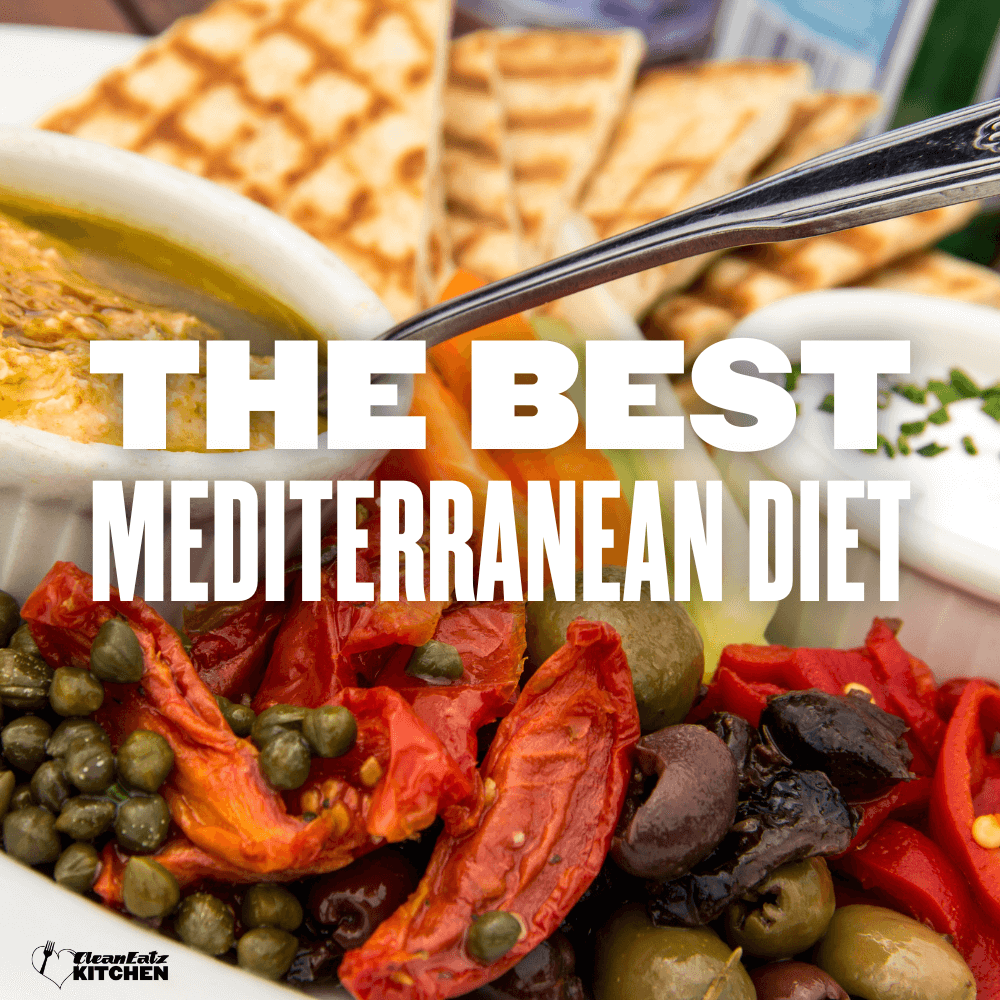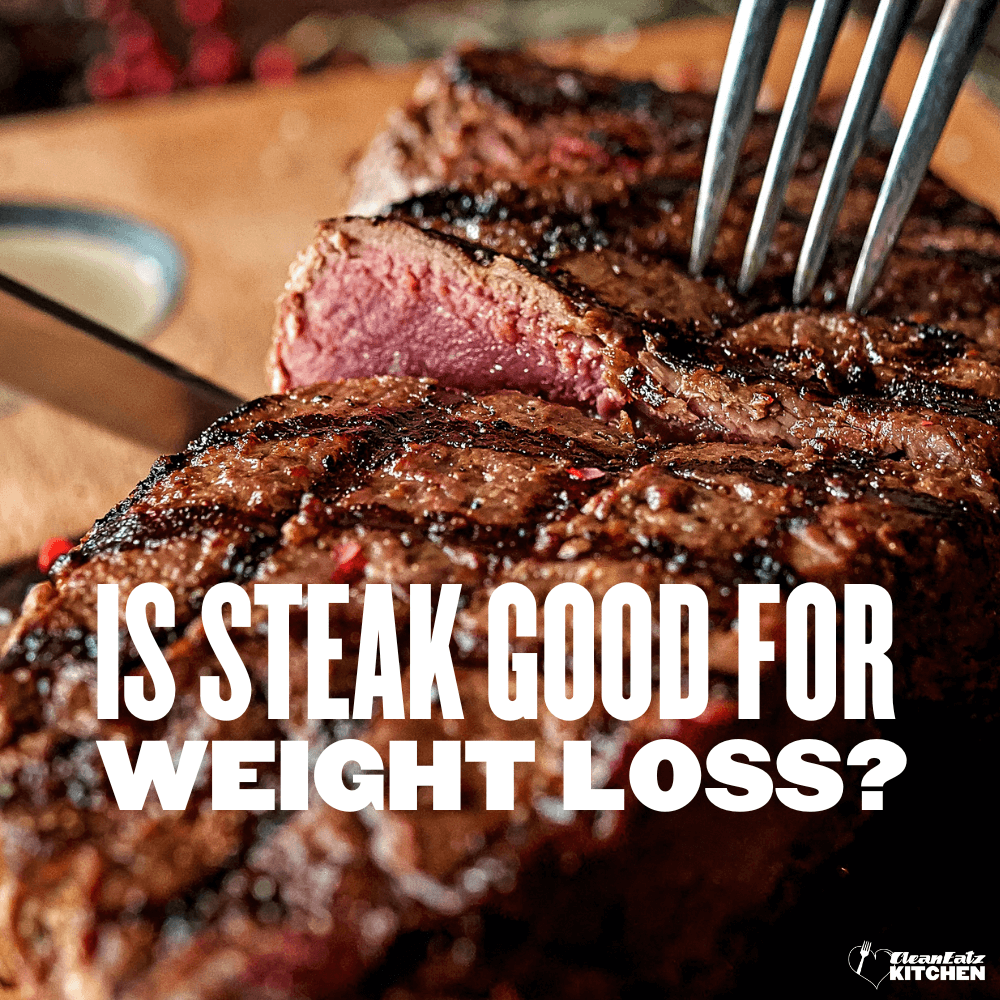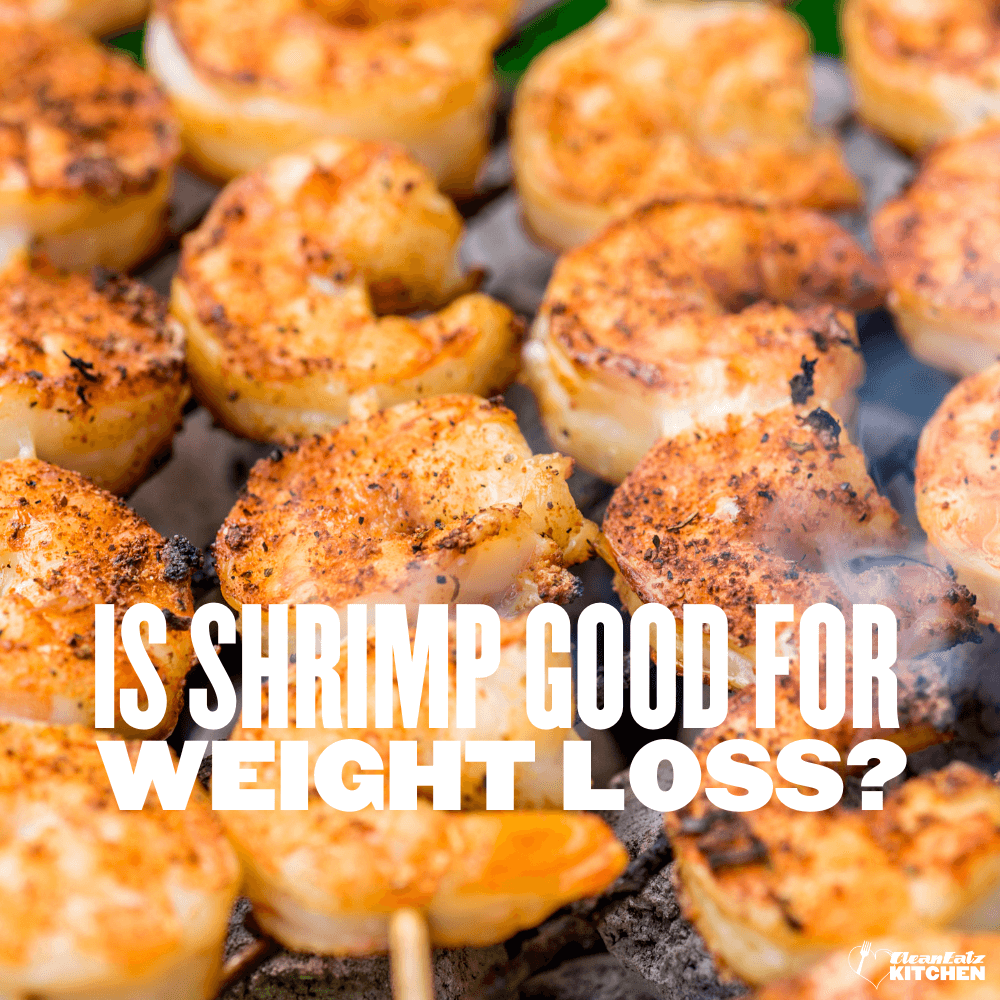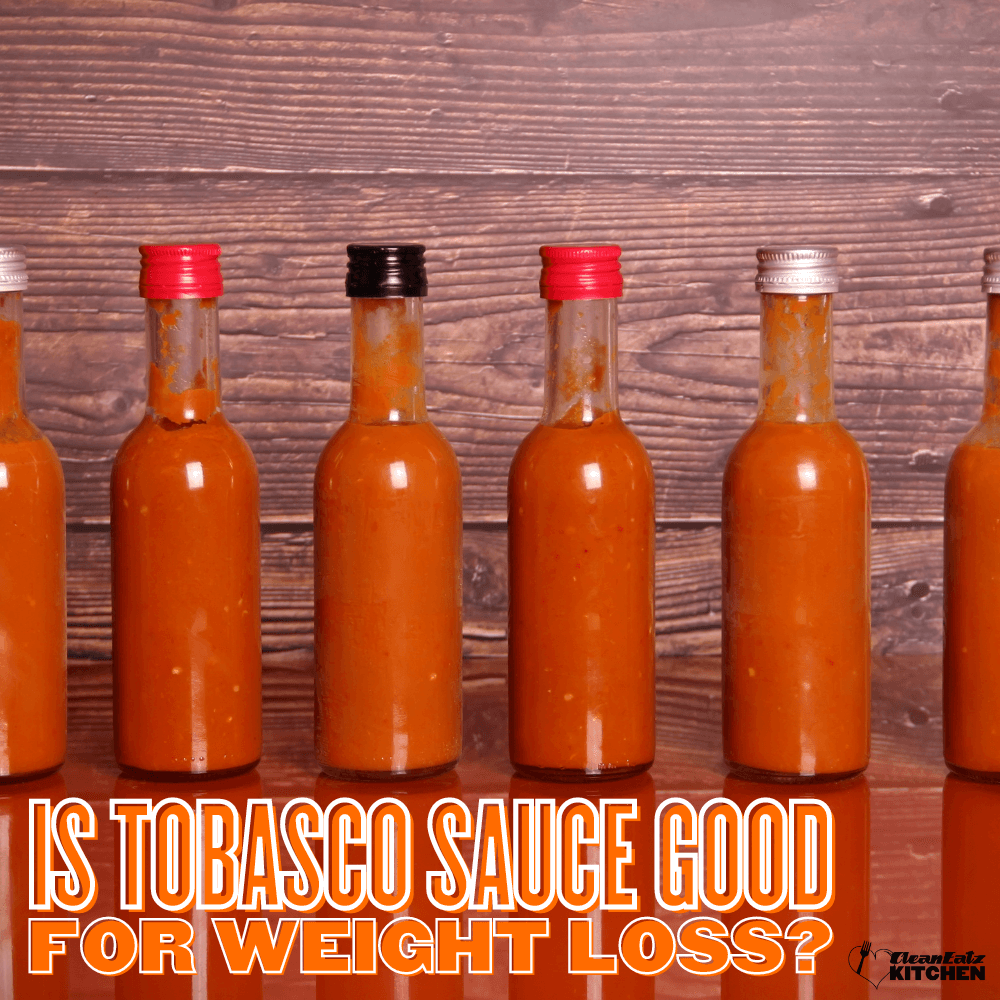
The Best Mediterranean Diet
Jason Nista
Nutrition
|
Weight Loss
8 minute read
You have most likely heard about it at some point, maybe from TV, social media or you might have even heard it from your doctor who suggested you try it to manage some health conditions. The Mediterranean diet is often promoted as good to help decrease the risk of heart disease, depression, and dementia among other numerous health benefits and is highly regarded as one of the best to try for improved health overall.
So if you’re curious about how the Mediterranean diet can help you lose weight, prevent disease and improve your health as a whole, read on to see what research has to say of its benefits and how to make it work for your goals of getting healthier and stronger.
What is the Mediterranean Diet?
The Mediterranean diet was first defined by Ancel Keys as a nutritional plan low in saturated fat
and high in healthy vegetable oils, like olive oil. It is observed in Greece and Southern Italy and other countries surrounding the mediterranean sea. The Mediterranean diet is a primarily plant-based eating regime that includes daily intake of whole grains, olive oil, avocados, nuts, fruits, vegetables, beans and other legumes, herbs, and spices. It can also include animal proteins but in smaller quantities and leaning more to fish and seafood.
However, it is also important to note that since there are many regions adopting these dietary guidelines, there are many versions of the mediterranean diet so it can be a bit confusing how to adopt these changes and make them work for you. We’ll cover the main guidelines for you to try out this diet, but first let0s see why it can be a good idea to give it a try and what it can do for you.
Proven Health Benefits of the Mediterranean Diet
There has been plenty of research on the benefits of following a Mediterranean style of eating. Some of which include:
- Reducing risk of heart disease: this has been shown in several studies that confirm a reduction of about a 30 percent lower risk of heart events.
- Reducing risk of stroke, especially in women. The diet reduced their chances by about 20 percent, but interestingly enough the protection is not as marked in men. Also in patients who did suffer from stroke the severity was markedly lower.
- Preventing cognitive decline and development of conditions like Alzheimer’s disease, and reducing symptoms of dementia. Research also shows it can help reduce risk and incidence of depression.
- Helping with weight loss and maintaining a healthy weight. Which can be explained by the inclusion of lots of vegetables and healthy oils and being low in highly processed foods. These lead to a highly nutritious diet lower in calories.
- It can help in the prevention and management of diabetes type 2 with a 52 percent lower risk of type 2 diabetes for people following a mediterranean diet and improved blood sugar control.
- It can also help manage conditions like rheumatoid arthritis by reducing inflammation with foods high in omega 3 fatty acids, helping reduce pain and swelling.
- It might also help prevent some types of cancer such as breast cancer, colorectal cancer, and head and neck cancers, and help prevent death among cancer survivors.
What is the Best Mediterranean Diet?
There are no set or fixed guidelines of specific grams, quantities and meal choices but rather general recommendations of proportion of foods, for example favoring more fruits and vegetables over dairy. It is up to the individual to decide exactly how much food to eat at each meal, as this will vary depending on your unique situation and circumstances. The general rules of a well executed mediterranean diet are:
- Being mainly plant based, favoring fresh whole foods like leafy green vegetables, fruits, and cereals which should take the majority of your plate.
- An emphasis on healthy fats. Olive oil is recommended as the primary added fat, replacing other oils and fats like butter. Ingestion of fatty fishes and seafood like salmon, sardines high in omega 3s is encouraged several times a week, as well as nuts and avocados.
- Choosing fish as the preferred animal protein at least twice weekly and other animal proteins of poultry, eggs, and dairy in smaller portions only a few times a week. Red meat is limited to only a few times per month or avoided altogether.
- Choosing water as the beverage for most, if not all, of your meals. But allowing a moderate intake of wine with meals as a unique characteristic of the nutritious recommendations, about one to two glasses a day for men and one glass a day for women.
- It is also a very important and common recommendation as an addition to the Mediterranean diet to live an active lifestyle trying to move as much as possible and engage in physical activity every day.
Why the Mediterranean Diet is More than Just a Diet
The Mediterranean diet isn’t actually a diet—it’s more of a lifestyle. This way of eating focuses on whole, unprocessed foods and emphasizes healthy fats like olive oil, nuts, and avocados. But it’s not just about what you eat—it’s about how you eat.
The Mediterranean diet is a delightful approach to nutrition that emphasizes delectable flavors and palate-pleasing meals and promotes the advantages of consuming wholesome ingredients.
Is There More Than One Mediterranean Diet?
The Mediterranean diet has long been recognized for its impressive health benefits and world-renowned culinary influence. However, while many guides and articles promote this beneficial lifestyle, it can be easy to forget that no single version of the Mediterranean diet is ideal for everyone.
Nutritionists know that it is essential to adjust what people should eat in different countries and time periods. They do this to show what people in that area have traditionally eaten. The information from research often talks about what people did 20 or 30 years ago when there were not as many choices for food and when nutritional habits were different in different countries.
It's important to also keep in mind that ingredients available on any given day will determine the dishes that can be made at home, highlighting how much local agriculture affects the adaptive nature of the Mediterranean diet across different nations.
What Do You Eat on the Mediterranean Diet?
Fortunately, this is a style of eating instead of strict regulations. This means that you can personalize it to your tastes and preferences. Therefore, there's no need to rigorously adhere or feel discouraged if you slip up occasionally - the point is to enjoy yourself! Ready to begin your journey? Here are the basics you need to keep in mind while enjoying a Mediterranean Diet!
Leafy Greens, Vegetables, and Fruits
The cornerstone of the Mediterranean diet is leafy greens, vegetables, and fruits. These should be eaten every day for optimal health benefits. The key here is to eat a variety of colors every day for maximum nutrition. Leafy greens like spinach and kale are especially beneficial because they contain vitamins and minerals like iron, calcium, and magnesium.
Try adding them to salads or sautéing them with olive oil for an easy side dish. Vegetables like broccoli, squash, peppers, and onions can also be added to salads or stir-fries for even more flavor. Fruits like apples, oranges, berries, and melons can be eaten fresh or added to smoothies for a quick snack or breakfast option.
Lean Proteins
Lean proteins from fish, poultry (like chicken), and eggs should also be part of your weekly routine when following the Mediterranean diet. Fish like salmon and tuna provide essential omega-3 fatty acids, which have been shown to reduce inflammation in the body while providing essential nutrients needed for brain function and cell growth.
Poultry provides lean protein without a lot of saturated fat while keeping meals interesting with its versatility in cooking methods (think roasted chicken breasts). Eggs are also a great source of protein and can be used as a meal replacement if desired.
Red Meat and Sweets
Red meat should only be consumed occasionally since it contains more saturated fat than other protein sources, like poultry or fish, which can increase cholesterol levels if eaten too frequently. Sweets should also only be eaten in moderation since they contain empty calories that provide no nutritional value but can add up quickly if you aren't careful!
Extra Virgin Olive Oil
Extra virgin olive oil is an integral part of this diet since it has been linked to reducing inflammation in the body due to its high content of monounsaturated fats (the good kind!). In addition, this type of oil also has strong antioxidant properties, which are essential for overall health maintenance, so make sure you use extra virgin olive oil whenever possible when cooking!
Mediterranean Meals Made Easy
Preparing meals with fresh ingredients doesn't have to be complicated or time-consuming! Start with a basic salad using crunchy vegetables like cucumbers and bell peppers topped with feta cheese and olives, plus your favorite dressing (olive oil-based dressings work best). Then, you can add protein sources such as grilled chicken or fish for an even heartier meal.
For snacks throughout the day, pair nuts with fruit like apples or grapes for a satisfying combination of crunchy sweetness. Enjoying meals with friends and family is also recommended for creating a sense of community around food!
Related Articles
Is Steak Good for Weight Loss?
8 minute read
Is Shrimp Good for Weight Loss?
6 minute read
Is Tabasco Sauce Good For Weight Loss?
8 minute read



